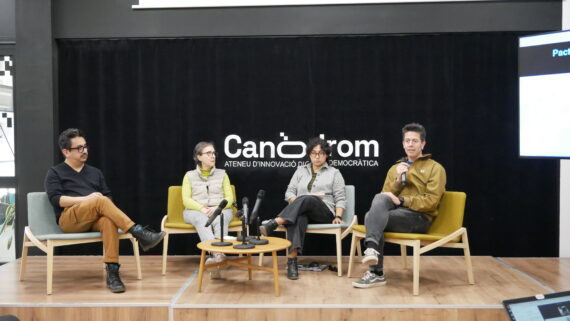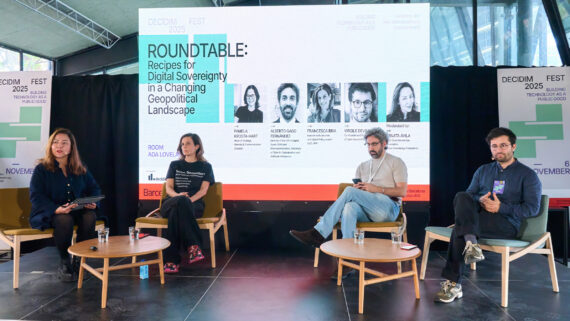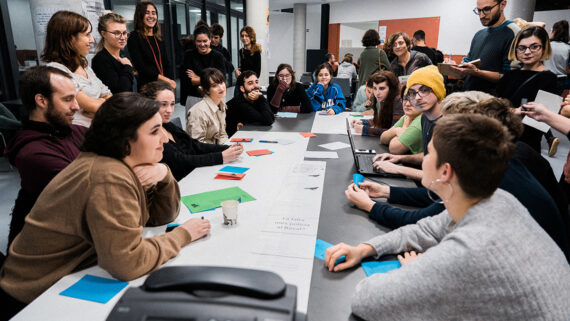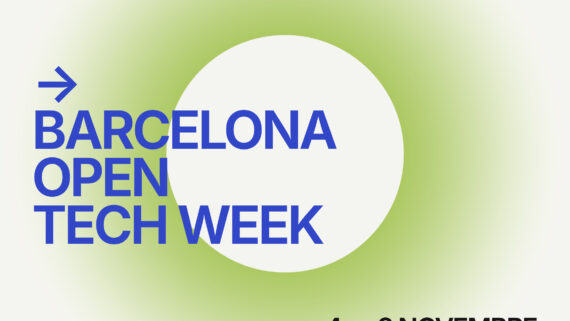The fourth session of the cycle, "Growing up among screens? Education, technologies, and democracy" analyzed the impact of socio-digital inequalities on the rights of children and adolescents, as well as current projects committed to combating these inequalities.
On April 24th, the European Commission opened a disciplinary proceeding against TikTok for violating the new Digital Services Act. The reason? Failure to address the risks of the new TikTok Lite, which rewards users. As a result, the app was withdrawn from the market less than a month after its launch. “We suspect that the TikTok Lite service is toxic and addictive, especially for children,” said Thierry Breton, Commissioner for Internal Market, in X.
TikTok Lite is a social network for short videos that differs from TikTok due to its rewards program, where users can earn points by completing tasks such as watching videos, liking content, following specific users, or inviting people to the app. Points can be redeemed for rewards, such as Amazon vouchers, PayPal gift cards, or TikTok’s own currency. In response, the app stated in X that they would voluntarily suspend TikTok Lite’s features until the situation is resolved.
Beyond the classrooms, what impact do digital inequalities have? Are we promoting digital skills to erase inequalities, or are digital divides being consolidated? The fourth session of the cycle, “Growing up between screens? Education, technologies, and democracy” addressed diverse perspectives on digital divides with the participation of Sandra Gómez, a researcher at the Ferrer i Guàrdia Foundation; Carlos Bajo, journalist and social researcher at Oxfam Intermón, Agnès Pàmies, director of the Code Club program at the Bofill Foundation, and Lidón Gasull, lawyer and director of the Federated Associations of Student Families of Catalonia (aFFaC).
The digital divide in Catalonia
Sandra Gómez began her intervention by contextualizing the phenomenon of the digital divide in Catalonia. As part of the Catalan Charter for Digital Rights and Responsibilities, the Ferrer i Guàrdia Foundation conducted a survey that collected data on the first national survey dedicated exclusively to the digital divide and digital literacy.
Gómez explained how definitions of the digital divide have evolved, moving from focusing on access to including the use and quality of technology use. In Spain, the digital divide is a manifestation of deeper social inequalities, disproportionately affecting households with incomes below €1,100, which have 20% less access to the internet. She emphasized the need to ensure digital literacy and reduce the current digital divide, which in our country affects 32% of households, according to the Third Sector Board.
Agnès Pàmies complemented this perspective by highlighting the importance of addressing digital skills not only within schools but also beyond. According to Pàmies, “schools must ensure equality among children, but it is essential to create educational spaces outside of school to prevent machines from arriving before pedagogical knowledge.”
Educational Initiatives and the Role of Families
In this section, Pàmies explained how the Code Club program by Colectic and the Bofill Foundation promotes programming learning to prevent the widening of digital divides. “Only 5% of children participating in extracurricular activities choose technological activities,” she noted, emphasizing the need to collaborate with children to make them feel represented and empowered in the use of technology.
Lidón Gasull, on the other hand, emphasized the crucial role of families as agents of change. The project edDIT: Technological corporations, digital educational platforms, and guaranteeing children’s rights with a gender perspective by aFFaC investigates the uses of large digital platforms in schools and public institutes, analyzing the impact of the deployment of these tools from six dimensions of rights: the free development of childhood, equality and non-discrimination, freedom of education and academic freedom, access to modern technology and literacy, privacy and data protection, and the right to information and freedom of opinion and expression.
This research is of particular relevance as it is one of the first studies on a national and international scale that demonstrates that the impact and use of digital platforms by Big Tech in educational centers can violate children’s rights. Gasull highlighted the crucial role of families as agents of change, adding that “it is essential to develop public policies aimed at families to involve them in decision-making about digital tools in schools.”
The digital divide and global justice
Carlos Bajo Erro provided a global perspective on the digital divide, explaining how it relates to global justice. Digital rights offer an opportunity to rethink the present and imagine futures that are not dictated solely by Silicon Valley or Beijing. In this vein, Oxfam Intermón published a report to review the concept of digital rights and place them in the geopolitical context, highlighting especially the initiatives of civil society and communities, and making visible the movements of the global South.
Bajo warned about the threats of hegemonic models of digitalization, which contribute to inequality in terms of sovereignty, health, environment, and labor economy. “Hegemonic models of digitalization are engines of inequality, not only between the North and the South, but also between the center and the periphery,” he explained. He advocated for promoting a critical and rational view of technology use, emphasizing that “initiatives built from civil society show that it is possible to have alternatives to the technocapitalist model.”
Proposals to address digital divides from public administration
After intense debate, the event provided a comprehensive and multidimensional view of digital inequalities, highlighting the need for coordinated action among educational institutions, families, and public administrations to address this issue:
- Sandra Gómez emphasized the need to recognize digital technologies as a social good and to address inequalities effectively. She insisted that “data is essential to understand the vulnerability of children and young people in the digital environment.”
- Agnès Pàmies stressed the importance of ensuring digital skills both inside and outside of school with a citizen-focused, not consumer-focused approach.
- Lidón Gasull advocated for setting limits on corporations to protect digital privacy, emphasizing that “just as we have privacy protected in real life, we must also protect it in the digital realm.”
- Carlos Bajo Erro emphasized that digital inequalities are a vulnerability of rights, highlighting the need for governmental initiatives that promote responsible and rational use of technology.







